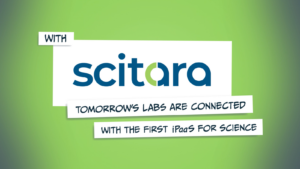Marlborough, MA – Since time immemorial, information has always been valuable. Institutions the world over have dedicated copious amounts of resources in the name of gathering and retaining information. Only just a few decades ago, info about anyone’s personal life was difficult to acquire without getting it from the individual themself. Now, with the Internet, it’s easier than ever to sidestep that consent without the person’s knowledge. As a result, data privacy has become a hotbed topic.
Data privacy is all about keeping private information… well… private. From health records to guilty pleasures, we all have aspects of ourselves we want to keep on the down low. Nowadays, much of this info is digital and accessible in some capacity whether we know and like it or not. Some entities – legitimate or otherwise – deal in this information without consent.
Many companies track their users’ online activity (even if they don’t have those companies’ applications open) to learn about their users’ likes, dislikes, political and ideological affiliations, if they’re shopping for something, just about anything. Some of these companies may then sell that data to third parties. Now, some of the companies have claimed that they take data privacy very seriously and don’t actually do this, but they have only given their word while cold, hard evidence and whistleblowers say the opposite.
As you can see, it’s quite simple for corporations to access personal info without anyone’s explicit permission. Logically, that must mean it could be just as easy for hostile persons to obtain the same information as well. This leans now into the second topic of this post: data security. Data security concerns the protection of data from malicious actions like cyberattacks or data breaches. Data security is actually an integral part of the topic of our previous blog, data integrity. Having solid security can keep data safe from anyone seeking to alter it for heinous purposes.
Chances are you are already familiar with one of the most basic data security packages: anti-virus software. Anytime you buy a new computer, it’s one of the few things you need to install right away, provided it wasn’t pre-installed. Computer viruses are the most common form of cyberattack, though things like malware, ransomware, and rootkits are also used to gain access or even take control of another person’s computer. Other forms of data security technologies also include encryption, two-factor authentication, and backups.
And there you have it: a quick summary on data privacy and security. The digital world is an unforgiving place, so having a platform that can keep your data safe and for your eyes only is critical. Scitara’s Digital Lab Exchange DLX™ can help thanks to its robust monitoring system. Any changes to data – even those in flight – can be seen, alerting users to potential breaches or data corruption. Regardless of what you do, though, be sure to keep all your data – at home and on the job – well under lock and key.
About Scitara
Scitara is a global provider of cloud-based, industry-specific platform and solutions for the life sciences industry. Based in Massachusetts, the Scitara leadership brings decades of experience in solving digital challenges for the scientific laboratory: Meet the Modern Lab™. For more information, please visit www.scitara.com.
